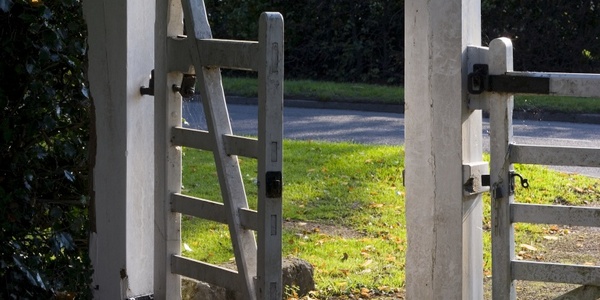
February 22, 2012, by Brigitte Nerlich
Waiting for gate-gate
Debates about climate change (global warming, the greenhouse effect and so on) have a long history. However, observers of the debate generally agree that 1988, the year that the IPCC was created, was the year that climate science became climate politics. From then onwards there was, on the one hand, a steady accumulation of scientific evidence that climate change was happening and caused or exacerbated by human activities and, on the other hand, a relatively steady increase in media attention to the matter, reaching a peak in 2007. Scientists, the media and policy makers (especially in Europe and the UK) began to work in an atmosphere generally characterised by a sense that one knew what climate change was, that it was real, and that the only thing that remained to be done was change people’s behaviour. To do this, better communication strategies were called for and public engagement efforts were intensified, online and offline. Overall, the science seemed certain; what remained uncertain was how to go about doing the right thing.
Climategate
In November 2009, ‘climategate’ turned the tables on science, on certainty and on the status of scientific evidence. From then onwards the climate change debate became a tale of ‘two evidences’. Hacked emails between climate scientists, which were released during climategate, seemed to provide evidence for the fact that climate scientists had manipulated data, suppressed critical voices and that they were engaged in conspiracy and fraud. In short, accumulating scientific evidence came under attack from a different sort of ‘evidence’ intended to subvert it by undermining the credibility of those engaged in accumulating it.
More ‘Gates’
In October 2011, a new study announced supporting scientific evidence for the claims that had been made by the scientists vilified in the climategate affair. Shortly afterwards, in November 2011, a new batch of emails related to the climategate affair was released purporting to provide further evidence for the wrong-doings and general political and money-grabbing shenanigans in which climate scientists were allegedly involved. On Valentine’s Day this year, in a further twist to the story, documents were released allegedly showing how some climate sceptics went about trying to undermine the type of climate science and climate politics that had been going on relatively undisturbed between 1988 and 2009.
Neutral observers of this game of ping-pong between what one might roughly call the pro-climate science camp and the anti-climate science camp can easily become dizzy, tired and confused. They (and this might mean large portions of the general public which have not yet adopted a stable position on the matter of climate change), might also ask themselves whose ‘evidence’ to believe, the scientific evidence that might tell them to change their live styles or the ‘conspiracy’ evidence that might tell them there is no need to do so. They might also hope that after climategate, climategate-gate, climategate 2.0 (or climategate, the sequel), and now deniergate or scepticgate (or what one might call ‘the climategate strikes back’), there will soon be a ‘gate-gate’ and that climate-gate might finally be ‘closed’… A somewhat forlorn hope, as deniergate is turning into Gleickgate…and so the ping-pong goes on…
Brigitte Nerlich (Professor of Science, Language and Society – Institute for Science and Society, The University of Nottingham)

It can be difficult to define who is a ‘neutral observer’ in this heated debate.
It could be argued that someone who talks about the ‘scientific evidence’ versus the ‘conspiracy evidence’ is not.
I agree that it is unlikely that we have seen the last climate-related ‘gate’!
Yes, I felt quite uneasy when I was writing the word ‘neutral’. But there must be people out there who haven’t really engaged with the issue and haven’t adopted an entrenched position who might be asking themselves: WHAT is going on here and then turn away from the issue of climate change itself. Thanks for the comment!
[…] has been a lot of debate recently about climate scepticism and climate sceptics. To define what climate sceptics are is actually quite difficult, but some may […]
[…] More –gates […]
[…] Climategate(s) […]